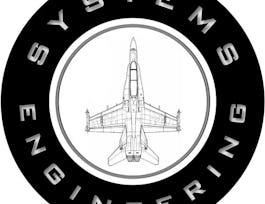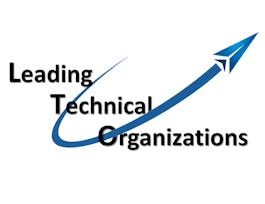Resilience & Leadership: Concepts, Definitions, & Frameworks is the first course in the specialization ‘Resilience Engineering and Leadership in Crisis’. The course introduces the common terms, definitions, and concepts that characterize resilient systems. Frameworks for resilience engineering and leadership in crisis are applied to complex systems and the built environment. Learners will explore a holistic approach to critical infrastructure resilience and apply a hazard and threat assessment protocol to a project scenario.

Offrez à votre carrière le cadeau de Coursera Plus avec $160 de réduction, facturé annuellement. Économisez aujourd’hui.


Resilience & Leadership: Concepts, Definitions, & Frameworks
Ce cours fait partie de Spécialisation Resilience Engineering and Leadership in Crisis

Instructeur : John E. Thomas
Inclus avec 
Expérience recommandée
Ce que vous apprendrez
Define resilience and explain the meaning of the built environment.
Outline a holistic approach to resilience of critical infrastructure systems.
Apply resilience and crisis management frameworks to complex scenarios.
Interpret how ethics may enhance or diminish adaptive capacity.
Compétences que vous acquerrez
- Catégorie : Emergency Management
- Catégorie : Industrial And Organizational Psychology
- Catégorie : Business Ethics
- Catégorie : Crisis Management
- Catégorie : Resilience
Détails à connaître

Ajouter à votre profil LinkedIn
5 devoirs
Découvrez comment les employés des entreprises prestigieuses maîtrisent des compétences recherchées

Élaborez votre expertise du sujet
- Apprenez de nouveaux concepts auprès d'experts du secteur
- Acquérez une compréhension de base d'un sujet ou d'un outil
- Développez des compétences professionnelles avec des projets pratiques
- Obtenez un certificat professionnel partageable


Obtenez un certificat professionnel
Ajoutez cette qualification à votre profil LinkedIn ou à votre CV
Partagez-le sur les réseaux sociaux et dans votre évaluation de performance

Il y a 5 modules dans ce cours
Welcome to the first course of the Resilience & Leadership series. We will get started right away by defining key concepts that will be touched upon throughout this course: resilience, resilience engineering, the built environment, and critical infrastructure. After, you will see examples of the four cornerstones of resilience that can characterize the response of a complex system to unanticipated disruptions. You will consider multiple perspectives of resilience that present an alternative to traditional risk analysis. Then, we'll discuss a holistic approach to resilience using an Integral framework. The framework is an important tool that will be referenced throughout this specialization, and applies directly to Resilience Engineering and Leadership in Crisis. Let's get started!
Inclus
6 vidéos7 lectures1 devoir1 évaluation par les pairs
This module introduces more resilience concepts, tools, and frameworks. First, we’ll examine an expansion of Hollnagel’s work with four socio-technical processes to describe the resilience of a complex system. You will be introduced to the definition of a crisis, and a framework for crisis management as a strategic process. The framework covers landscape survey, strategic planning, crisis management, and organizational learning from both internal and external perspectives. Finally, we’ll continue our review of critical infrastructure resilience policy framework established by the DHS (Department of Homeland Security).
Inclus
6 vidéos6 lectures1 devoir1 évaluation par les pairs
Sully Sullenberger's landing on the Hudson River is an example of resilience during a crisis and can teach us many things. In this module, we’ll discuss the event and how a ‘human-in-the-loop’ can contribute adaptive capacity amid catastrophic system failure. We’ll go on to examine the crisis management landscape and normal accident theory in relation to known and unknown threats, hazards, and transboundary impacts. You'll compare organizational and societal crises with natural and man-made disasters. Finally, a DHS protocol for identifying and assessing threats will be introduced.
Inclus
8 vidéos9 lectures1 devoir1 évaluation par les pairs
This module explores business ethics in relation to crisis events. We will discuss the role of ethics in crisis leadership and examine a mini-case of the Hawk's Nest Tunnel Disaster of the 1930s. The module presents ethics in a context of the crisis management framework and describes how organizational learning can affect policy. One assignment for this module provides an opportunity to reflect on lessons learned from the Deepwater Horizon event.
Inclus
7 vidéos6 lectures1 devoir1 évaluation par les pairs
In this module, we’ll examine some of the patterns that emerge when adaptive (complex) systems fail. Patterns of maladaptation can also be observed like decompensation, working at cross-purposes, or getting stuck in outdated behaviors. We’ll also look at sources of organizational crisis in more detail. Different types of internal and external forces can impact the safety, security, and resilience of an organization. Other considerations include industry and organizational life-cycle crises. Finally, we’ll talk about human resilience and development in relation to critical infrastructure resilience.
Inclus
8 vidéos8 lectures1 devoir1 évaluation par les pairs
Instructeur

Offert par
Recommandé si vous êtes intéressé(e) par Environmental Science and Sustainability

University of Colorado Boulder

University of Colorado Boulder

University of Colorado Boulder

University of Colorado Boulder
Pour quelles raisons les étudiants sur Coursera nous choisissent-ils pour leur carrière ?





Ouvrez de nouvelles portes avec Coursera Plus
Accès illimité à plus de 7 000 cours de renommée internationale, à des projets pratiques et à des programmes de certificats reconnus sur le marché du travail, tous inclus dans votre abonnement
Faites progresser votre carrière avec un diplôme en ligne
Obtenez un diplôme auprès d’universités de renommée mondiale - 100 % en ligne
Rejoignez plus de 3 400 entreprises mondiales qui ont choisi Coursera pour les affaires
Améliorez les compétences de vos employés pour exceller dans l’économie numérique
Foire Aux Questions
Access to lectures and assignments depends on your type of enrollment. If you take a course in audit mode, you will be able to see most course materials for free. To access graded assignments and to earn a Certificate, you will need to purchase the Certificate experience, during or after your audit. If you don't see the audit option:
The course may not offer an audit option. You can try a Free Trial instead, or apply for Financial Aid.
The course may offer 'Full Course, No Certificate' instead. This option lets you see all course materials, submit required assessments, and get a final grade. This also means that you will not be able to purchase a Certificate experience.
When you enroll in the course, you get access to all of the courses in the Specialization, and you earn a certificate when you complete the work. Your electronic Certificate will be added to your Accomplishments page - from there, you can print your Certificate or add it to your LinkedIn profile. If you only want to read and view the course content, you can audit the course for free.
If you subscribed, you get a 7-day free trial during which you can cancel at no penalty. After that, we don’t give refunds, but you can cancel your subscription at any time. See our full refund policy.

